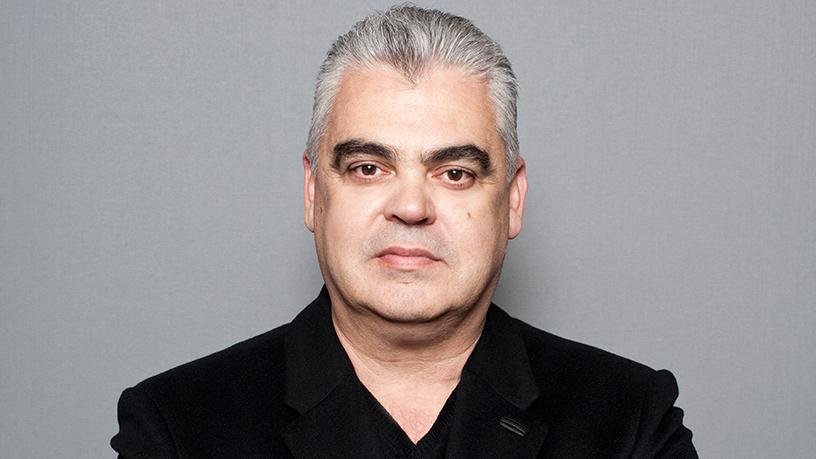
Cell C hopes government will soon fast-track spectrum allocation for mobile operators.
This is according to CEO Jose Dos Santos, speaking at the company's annual financial results presentation in Johannesburg yesterday.
"With the new South African president's State of the Nation address (SONA), he made reference to spectrum. I think that what president Cyril Ramaphosa was alluding to, was that they will probably fast-track that process and release that spectrum which is much-needed for our industry, to start providing better services and bringing in new technologies like 5G," Dos Santos said.
"We will finalise our engagements with the telecommunications industry and other stakeholders to ensure the allocation of spectrum reduces barriers to entry, promotes competition and reduces the cost to consumers," president Ramaphosa said in his first SONA speech on 16 February.
"We hope with the new Cabinet reshuffle, whatever that may be when it gets announced, that government will fast-track the spectrum process," Dos Santos added.
He was referring to the digital migration process, whereby SA needs to complete the switch from analogue to digital terrestrial television, to allow high-demand radio frequency spectrum to be freed up for mobile broadband services.
The original deadline for the switch, set by the International Telecommunication Union, was June 2015, which SA missed. For years, the process has experienced delay after delay but the Department of Communications (DOC) recently said it is determined to make the switch happen by June 2019.
"We have to come to some resolution. We have been sitting for five, six, seven years waiting for [digital migration to be completed], so hopefully government will make a decision and release that spectrum to the telecommunication operators so that we can utilise it and bring new technologies and launch 5G, in a cost-effective way," Dos Santos told ITWeb in an interview.
Finance minister Malusi Gigaba is today delivering Budget 2018, his maiden budget speech, and Dos Santos says that from a telecommunications point of view, he hopes to hear some clarity on spectrum allocation.
"Get it over and done with, get the spectrum out there, award it to the players and let them carry on doing what they do best," he said.
For now, he says it's a "wait and see approach" until after the budget speech because "there is probably going to be some sort of reshuffle, so it will depend if we get affected or not". This would be if the leadership in the Department of Telecommunications and Postal Services (DTPS) or DOC is changed, which could affect a number of regulatory policies in the pipeline.
A long road
The allocation of more high demand spectrum to mobile operators has been up in the air for years. In July 2016, ICASAissued an invitation to operators to apply for licences for spectrum in the 700MHz, 800MHz and 2.6GHz bands, to be used to provide mobile broadband wireless access services in SA. However, DTPS minister Siyabonga Cwele challenged the move in court and won an interdict to halt ICASA's planned spectrum auction.
The National Integrated ICT Policy White Paper was then released in September 2016 and proposed a shake-up of the previous policy framework for spectrum allocation in favour of an "open access regime". This is in the form of a wireless open access network (WOAN), which garnered criticism from many stakeholders in the sector.
The Electronic Communications Amendment Bill (ECA Bill) was then approved by Cabinet in November 2017, and seeks to implement and give effect to the policy objectives set out in the ICT White Paper.
Telecoms operators and industry players submitted comments on the ECA Bill in January and are now waiting for government to host public hearings in early March.
In terms of the Bill, Dos Santos says "overall it's a relatively good Bill" with good intentions.
"There are some aspects that need to be looked into in more detail and a little bit more discussion but overall the principle of the WOAN is a good thing. You know we have always been vocal and we support that approach. It's a question of now, if there is new leadership [in the DTPS] or if the existing leadership is staying in place, that we actually sit around the table and get a working model and start the implementation process and drive that through."
"[Cell C's issues with the Bill] are just technicalities that need to be addressed; we have to address the commercial aspect of how it's going to work. But overall the intentions of it [are good], in terms of the mass market and affordability, and creating a platform for the majority of South Africans to have access to affordable broadband services"
Telkom's submission on the ECA Bill says that "in order to ensure the viability of the WOAN, Telkom supports the policy that all unassigned high-demand spectrum (HDS) should be assigned to the WOAN. No HDS should therefore be assigned outside of the WOAN."
Dos Santos says he agrees with Telkom to some extent.
"I think the majority of it should go [to the WOAN] but that is the debate that one has to go through and find that working model, but I'm not too misaligned with Telkom's view in that. I'm not saying it should be 100%, I think a good 70% to 80% should be more than adequate."
MTN, however, has many issues with the ECA Bill in its current form, including that it believes the WOAN will not achieve its stated objectives.
"Appropriate regulation should encourage economic transformation, promote competition, encourage investment, reduce unnecessary costs and remove obstacles for firms to compete. The proposed regulatory interventions in the Bill will not do so: on the contrary, they will harm incentives to invest, will harm competition and will harm consumers, in particular the poorest and most vulnerable consumers," MTN said.
Share